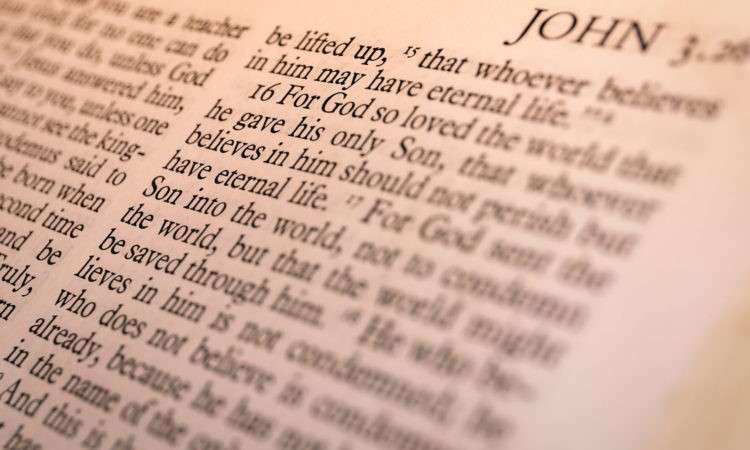The Order of Salvation – The Application of Redemption (Part 2)

9 minutes to read
In the first part, we had focussed on the life of the preacher, but in this part, we look more specifically at Paul's second exhortation here in 1 Timothy 4:16, “pay close attention to yourself and to your doctrine or to your teaching.” He's not just talking about the manner of his presentation. He's talking about the content of his message and it's the responsibility of the preacher to “Earnestly contend,” Jude said, “for the faith once for all delivered.” And the Apostle Paul said that, “All scripture is given by inspiration of God is profitable for doctrine for reprove, correction, training in righteousness that the man of God would be equipped thoroughly furnished for every good work.” The first use of scripture is for doctrine, for biblical truth. So then as Paul said in 1 Titus 1:9, "the elder must be able to exhort in sound doctrine and to refute and rebuke those that contradict." So, it is absolutely crucial, and oftentimes failures in ministry or fruitlessness in ministry is a direct result of the preacher's inconsistent life or the preacher's poor understanding of doctrine. There’s much false teaching, and weak erroneous doctrine in America, in China, and in India, and all over the world. And the Apostle Paul told the elders of Ephesus in Acts 20 that “be on guard for yourselves and for all the Church of God, over whom the Holy Spirit made you overseers to shepherd the church of God that he purchased with his own blood.” Why? “Because after I depart savage wolves will come in, not sparing the flock and number two from among you false teachers will arise leading people astray.”
The gospel is the historical reality of three events that were accomplished by Jesus Christ: His righteous life, His sacrificial death, and His glorious resurrection.
It is absolutely crucial that in addition to deepening holiness in your life, you are growing in and understanding the truth of God. There's some truth that is absolutely crucial and essential. There's some doctrines that are important but are non-essential. For example, it is not necessarily a salvation issue of a person whether his eschatology is amillennial, post-millennial and pre-millennial. It is not absolutely crucial in regards to pneumatology or his doctrine of the Holy Spirit that he is a cessationist or non-cessationist regarding the spiritual gifts. Also in regards to the question of baptism, however, this is a bit more crucial because it can have eternal consequences. If people are hoping in their baptism, that is whether one is a baptist or whether one is a pedobaptist, that is more crucial. But pay attention: we are absolutely required to be certain in our understanding of the foundational doctrine regarding salvation issues.
That's what we are focusing on: the doctrine of salvation. This will be a review for some of you and new for some of you, but I do not apologize, as Peter said, “to stir you up by way of reminder even though you know these things and have been grounded in them so that after my departure you may be able to call them to mind.” So we're talking about the doctrine of salvation.
By way of background, when we talk about the doctrine of salvation, it is usually discussed or presented in three stages. What do we mean Well? First of all, there is salvation planned in the eternity past. Second of all, there is salvation accomplished in redemptive history. Third of all, there is salvation applied in our own personal experience.
So, when theologians survey the doctrine of salvation, they talk about salvation being planned in the eternity past and that brings up three glorious truths: foreknowledge, predestination and election. That is salvation planned in eternity past.
Second of all, there is salvation accomplished in redemptive history by the Lord Jesus Christ and that focuses, of course, on the gospel itself. And the gospel is the historical reality of three events that were accomplished by Jesus Christ: His righteous life, His sacrificial death, and His glorious resurrection. That is, Jesus Christ came to earth and lived a righteous life in conformity to the law of God, earning by his obedience of perfect righteousness. He took that perfect righteousness to the cross as a substitute and sacrifice and as a ransom and payment for the guilt and penalty of the sins of sinners, and he accomplished a redemption, a propitiation and a reconciliation. You are familiar with these terms but all of life and eternity will be insufficient to explore the depths and the heights of that glorious reality. And thirdly, he was raised from the dead on the third day, declared with power to be the Son of God. That forms the basis of our justification, our sanctification and our glorification. Those are the implications of the resurrection.
When we talk about the doctrine of salvation planned in eternity past, this involves foreknowledge, predestination, and election. In its accomplishment in redemptive history, it concerns Jesus’ righteous life, sacrificial death, and glorious resurrection.
But, our focus is on salvation applied in the personal experience of the believer. How are the benefits and blessings of the salvation planned by Father, Son and Spirit in the great eternal covenant of redemption, accomplished by the Lord Jesus Christ in his life, death, and resurrection applied personally, individually, and experientially to the lives of believers? That is what we are studying.
I understand that this is a very broad subject, and we are surveying it briefly. But before we do that, I just want to pause and remind you of five important theological relationships that you must clearly understand if you're going to properly preach the gospel that is the power of God to salvation. These are five important theological relationships. Much confusion leading to what we call Pelagianism, Arminianism, Socinianism, Unitarianism, Weak Liberal Christianity is a result of a failure to understand these five important theological relationships. I will just mention them tonight as an introduction to our study.
1. You must clearly understand the relationship between foreknowledge and predestination. What is the relationship between foreknowledge and predestination? A twisting or confusion of that relationship leads to all manner of shallow, weak gospel presentations. Men, you must study and understand the relationship between and the distinction of foreknowledge and predestination.
2. You must clearly understand the relationship between total depravity and human responsibility. That man is totally depraved in the entirety of his being and consequently is morally unable to come to God on his own, and yet he is responsible to repent and believe. A confusion of those relationships produces all manner of errors.
Man is totally depraved in the entirety of his being and consequently is morally unable to come to God on his own, and yet he is responsible to repent and believe.
For example, a man says regarding foreknowledge and predestination, God simply looked down through history and saw who would believe, then he chose them. In other words, he chose them based upon their prior decision. In regards to total depravity and human responsibility, the erroneous thinking is that if God commands man to repent and believe, therefore, man must have the ability to repent and believe. That is, God would not require man to do something that he is not able to do. You must be able to answer that particular question clearly from the word of God. How can man be totally depraved, morally unable, and yet legally humanly responsible to repent and believe?
Now Jonathan Edward calls this the distinction between natural ability and moral ability. And I strongly suggest that you read him on that. He goes a little thick, but it's very important. We're talking about the difference between absolute freedom of will and relative freedom of choice. And if you don't understand the difference between those two realities, you will preach the gospel inappropriately.
3. You must clearly understand the relationship between regeneration and conversion. Most people say that a man repents and believes, then he is born again. But the question is: Is that what the scripture teaches? We will be looking at this more in detail.
4. You must clearly understand the relationship between justification and sanctification. This is one of the most crucial theological distinctions in every generation. To mix them together produces legalism. To separate them entirely produces antinomianism or loose living. It is absolutely crucial that each generation of preachers understand afresh in their own mind, and can clearly prove and plainly preach the relationship between justification and sanctification from the word of God.
5. You must clearly understand the relationship between perseverance and eternal security.
If you're going to be a preacher, and you're going to be effective, and you're going to preach the gospel properly, you must clearly understand in your mind, be able to forcefully prove from the Scripture, and be able to accurately communicate in your preaching, the relationship between: foreknowledge and predestination, total depravity and human responsibility, regeneration and conversion, justification and sanctification, perseverance and eternal security.
Brethren, you ought to be studying that for the rest of your life.
This article is the transcript of the talk by Brother Andy H in the meeting held in August 2021 entitled ‘The Order of Salvation – The Application of Redemption.’
Please click here to read Part 1 of the article on “The Order of Salvation – The Application of Redemption” by Bro. Andy H.
Please click here to read Part 3 of the article on “The Order of Salvation – The Application of Redemption” by Bro. Andy H.
Please click here to read Part 4 of the article on “The Order of Salvation – The Application of Redemption” by Bro. Andy H.




